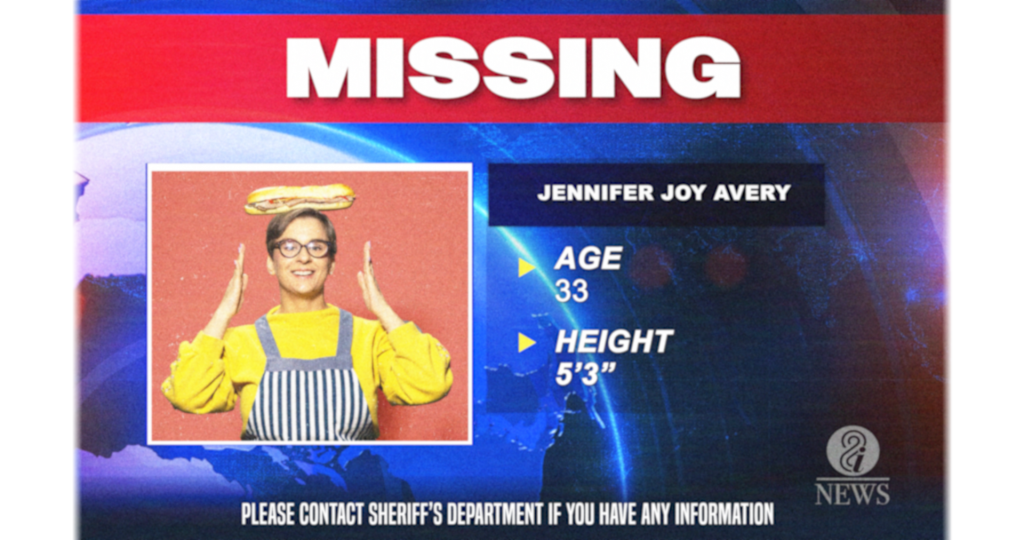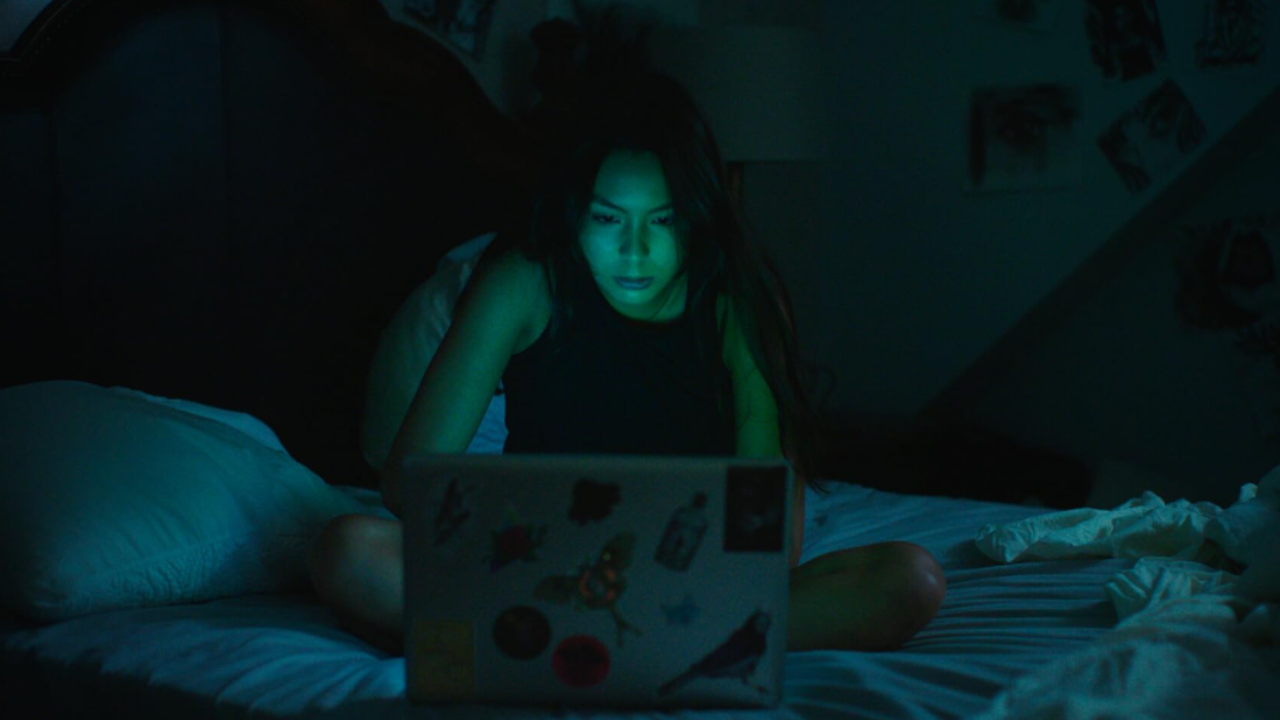Reviews
[REVIEW] Kill Means Kiss In ‘Pontypool’ (2008)

Out of all the snow-based horror films I could think of, one kept coming to mind. Tony Burgess’s Pontypool was an exceptional horror film that never got the love it deserved. While it may have received a physical release in 2009, very few people talked about it. A friend introduced me to this film in 2015 and I became obsessed with it. It wouldn’t be until Dead Meat released their Pontypool Kill Count, which currently sits on the verge of two million views, that it would have its much-needed comeuppance. It also helped that it was put on Shudder at some point around then.
Pontypool follows Grant Mazzy (Stephen McHattie), who was recently relocated to the small town of Pontypool after being fired from his long-time radio gig. He finds himself adjusting from his former shock jock life as he tries to build up an audience in this small town. He’s joined in the studio by his tech assistant, Laurel-Ann Drummond (Georgina Reilly), and his producer/station manager, Sydney Briar (Lisa Houle). Not too long into the broadcast, Grant receives a call from Ken Loney (Rick Roberts) in his Sunshine Chopper with troubling news. A horde of people have seemingly rioted into the office of Dr. Mendez (Hrant Alianak). What comes next is one of the most impressive and well-conceived zombie films of all time.
Pontypool is written by Tony Burgess, based on his novel Pontypool Changes Everything. Pontypool Changes Everythingis the second part in a trilogy with the first installment being The Hellmouths of Bewdley and the third being Caesarea; these novels were soon called The Pontypool Trilogy. Much like Mark Z. Danielewski’s House of Leaves, Pontypool Changes Everything seems unfilmable. It’s an incredibly unique and difficult novel that both itches and wrinkles your brain. Pontypool is a very loose adaptation of his own novel, but it gets all the boxes checked. Burgess’s novel is akin to Anthony Burgess’s A Clockwork Orange in overall reading difficulty. This novel is not a casual read. Burgess’s prose could definitely be a turnoff for casual readers. If you want to read Pontypool but don’t want to read Pontypool Changes Everything, there is a transcribed stage play that is incredibly fun and much easier for casual reading.
What makes Pontypool so intriguing is how the information regarding the zombie outbreak is disseminated. With this being a film about a radio show host, the majority of information regarding the zombies is told through calls to Grant from Ken (and a special appearance from another character but I won’t spoil who). Moreover, the infection isn’t spread directly through bites, instead it’s spread through words. The English language is infecting the residents of Pontypool. It should be noted that Pontypool director Bruce McDonald does not refer to the zombies as zombies; instead, they’re conversationalists. We’ll stick with calling them zombies for ease.
Pontypool releasing in 2008, is very important for the zombie subgenre. This is around the time the subgenre was taking over the shelves of Blockbuster and Walmart. I couldn’t go to one of these stores without seeing oversaturated shelves with low-budget, quick-turnout zombie films. Pontypool’s take on the subgenre was, in hindsight, uniquely refreshing. Burgess and McDonald give us a healthy dose of zombie action toward the end of the film, but Burgess edges the audience until there’s no other choice than to give us blood and action.
There’s nothing I can say regarding the spreading of the infection that hasn’t been said by people smarter than I, and that’s okay. If this novel or film was released today there would be heavy implications regarding why the infection is spread through language. Since I was just a wee lad when Burgess released his novel in 1998, I don’t necessarily know all the intricacies of what was happening politically at the time (I know a surface-level amount) but there’s no way you can read this novel or watch this film and not feel heavy undertones of social commentary. It also raises a very important question of just how quickly words can harm someone/a group of people. It’s like…a stand-up comedian being invited on stage by a presidential candidate and then calling a group of people in a certain U.S. Territory garbage.
Pontypool is a novel and film far ahead of its time. It will satiate the zombie lover who wants to see some flesh-ripping carnage and those who want a zombie story with deeper implications. (We don’t need to talk about the Christmas carol scene.) Plus, who doesn’t like seeing Stephen McHattie absolutely chewing the hell out of the scenery while drowning his sorrows deep in a bottle?
Reviews
Brooklyn Horror Film Festival 2025: ‘Buffet Infinity’ Review

Within the found footage subgenre exists an even more niche and untapped market. Screen life has slowly overtaken found footage; hardcore fans, like myself, ache for something different. One of the more interesting sub-subgenres of found footage is something that I don’t think has a name yet, so let’s name it here and now. How about…TV-gone-rogue! The TV-gone-rogue subgenre is small. Ghostwatch got the ball rolling for these gone rogue-like films, but there was radio silence for quite some time. It would be Chris LaMartina’s WNUF Halloween Special that really brought this idea back into the limelight. Many filmmakers have tried to make TV-gone-rogue interesting, and many have failed. That is until Simon Glassman stepped onto the scene with Buffet Infinity.
Buffet Infinity: A Chaotic Tale of Westridge
The town (city?) of Westridge is whisked into chaos when the new Buffet Infinity restaurant rolls into town. Local sandwich shop owner Jennifer Avery (Allison Bench) is the first to take the soon-to-be conglomerate to task with increasingly pointed advertisements. Suddenly, local restaurant owners/workers go missing in droves as Buffet Infinity expands into neighboring businesses. Sinkholes, missing cityfolk, quarantines, and mysterious sounds abound, leaving residents to ask one question…who really has the sauce?
On the Brooklyn Horror Film Festival schedule, the header image for Buffet Infinity shows multiple people T-posing and floating in the sky. I was immediately sold. I had no clue what I was getting into, and I didn’t want to know. The film was introduced as “one of the craziest we have this year.” (Slightly paraphrasing.) What was I about to watch? Little did I know, it was about to be an hour and forty minutes of small-town madness.
Writers Allison Bench and Elisia Snyder, and writer-director Simon Glassman, transport viewers into an upside down world of weaponized local ads; a thriving town invaded by the deep pockets of monopolized capitalism. As someone who grew up in a decently sized town, though probably not large enough to be considered a city, there was a tinge of nostalgia that accompanied Buffet Infinity. Westridge feels cozy and intimate, a town where everyone knows your name. It’s a “baked in a buttery flaky crust” town. Sure, they have their McDonald’s and Burger Kings, but the real townsfolk eat at Jennifer’s sandwich shop–local knitting circles murmur about what they think is in Jennifer’s secret sauce. Simply put, Westridge feels like a home that many people like myself grew up in. And it reminds us of a simpler time that’s long gone.

A Unique Blend of Humor and Eldritch Terror
Buffet Infinity hides its horror well. It slowly guides the viewer into a sense of unease. As easily as the creators have you laughing, they have you squirming. The absurdist joy quickly transforms into Eldritch terrors from beyond. Many filmmakers say they’re inspired by the idea of it’s-not-what-you-see that’s scary, but many times it feels performative. Bench, Glassman, and Snyder have crafted a truly special script that edges you with terror and excitement. They constantly push you to the edge of release, and then back away. It’s the Japanese water torture of exposition. And, for me, it works incredibly well.
One of the most important aspects of Buffet Infinity is the over-capitalization of our lives. While the creators tackle this idea in a tongue-in-cheek manner, their message is highly effective. For the most part. This constant tete-a-tete between Buffet Infinity and the locals is highly amusing, but brings a larger conversation to the forefront. The town I grew up in is a shadow of what it once was. And I know many feel the same about the towns they grew up in. I can already hear the moans of people who dislike this film: “Brandon, it’s not that deep.” And I would highly disagree. Buffet Infinity feels like a reflective protest film–a loud and proud middle finger at what we should have said when the Super Walmart put mom and pops out of business.
Sorry, this review has gone off the rails. Let’s reel it back in a bit.
Why Buffet Infinity Redefines Found Footage
Buffet Infinity is a riotous romp, a hilarious horror that goes from zero to 100 pretty damn fast. Each commercial slowly builds on its last and uniquely tells its story. This film sets a new precedent for the TV-gone-rogue subgenre. Not to directly compare, but a film like WNUF Halloween Special (a film I love) uses its commercials as a coda; it’s a separation of what you saw/heard and prepares you for the next movement. Buffet Infinity uses its commercial to create the story. Instead of watching news pieces, then irrelevant commercials, then back to news pieces, Buffet Infinity breaks the mold. Hell, it creates the mold.
As someone who has been dying to see a Welcome to Nightvale film, Buffet Infinity is the closest thing I could ask for. It is full of killer performances (looking at you, Ahmed Ahmed), is well-crafted, and sets a new precedent on an underutilized side of found footage. Buffett Infinity is a full-course meal. I highly suspect that Buffet Infinity will gather the unwavering support that Hundreds of Beavers gathered and will go on to be considered an instant classic of the 2020s.
Reviews
Brooklyn Horror Film Fest 2025: ‘It Needs Eyes’ Review

We are all very much aware of how much time we spend on our phones. More importantly, anyone on the internet can see how younger generations are impacted by being constantly online. So, Zack Ogle and Aaron Pagniano’s new film, It Needs Eyes, is preaching to the choir. However, it adds creepy layers to the conversations many of us are already having today.
It Needs Eyes follows a teen named Rowan (Raquel Lebish) who is moving in with her aunt after a traumatic event. Her aunt Mella (Lydia Fiore) hasn’t spoken to the family in years. So, her relationship with her niece is strained to say the least. However, she has stepped in now that Rowan’s father is in the hospital. Further widening their divide is the fact that Rowan is glued to her phone.
The Internet Is Scary
We see Rowan watching random videos, as she tries to distract herself from her own thoughts while she worries about her father. However, soon, cat videos aren’t doing it for her, and she starts to find extreme videos online. Things escalate to the point that she is watching self-harm videos and clips of people dying. This addiction begins to make it hard for her to connect with the people around her, including her new neighbor and love interest, Alex (Isadora Leiva).
It Needs Eyes has a protagonist that many can relate to. After all, aren’t we all using these smart devices to hide from our own problems? Who among us hasn’t lost an embarrassing amount of hours watching videos and reels? However, because it’s driving in the internet addiction lane, Rowan’s need for content escalates. She needs darker videos in the same way that someone makes the leap into harder drugs. Her journey parallels nicely with her father’s battle with addiction, which is one of the many things Rowan doesn’t seem ready to face.
Addiction and Loneliness are a Deadly Combo
Rowan’s addiction, loneliness, and inability to fully connect with people not on her phone eventually leads her to stumble across the ultimate score. She discovers a woman named Fishtooth (Lola Blanc) who made videos in the 80s and seemingly disappeared. Rowan cannot let this mystery go and soon begins to follow clues that Fishtooth may be closer than she thinks. This is where the creepy mystery thread begins to weave itself around all of the other threads of the film. Before Fishtooth was introduced, I was starting to worry this movie would just be seven fucked up images in a trench coat.
It Needs Eyes is one of those movies you go back and forth on. I loved discussing the themes of it in the bar after the Brooklyn Horror Film Fest screening. I even really dug some of the twisted imagery and topics it manages to tackle. The movie deserves some respect for how it handles so many issues surrounding internet culture without straying too far from its path. If you’re looking for a dark exploration of how the internet is absorbing us and preventing us from being present in our actual lives, this is your movie. It’s an interesting and at times disturbing reminder that we should all unplug more often.























